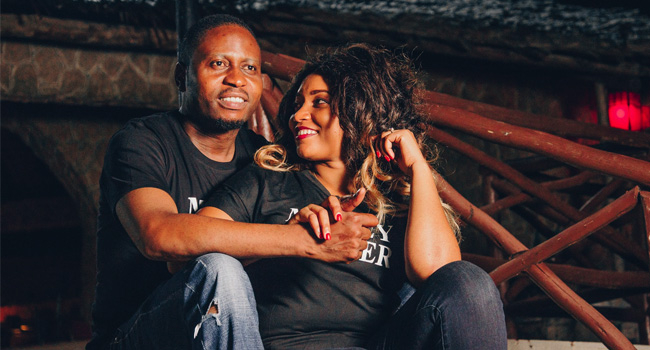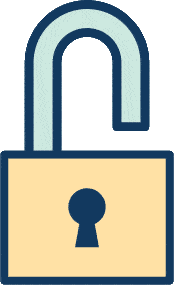When you’re trying to manage your obsessive-compulsive disorder, it’s easy to become overwhelmed and entirely focused on the self. This is completely normal, especially while you’re navigating treatment early on.
When you combine OCD and relationships, though, things can get even more complicated. OCD can get you stuck in your own head, and trying to make room for another person can be difficult.
You and your partner can learn to manage and have a healthy and happy relationship though, even if you have a more extreme version of OCD.
We know what it’s like trying to navigate a relationship with mental illness and we’re here to help provide guidance. Keep reading to learn more about how OCD doesn’t have to get in the way of your relationship.
How Can OCD Present In My Relationship?
If you’re managing your obsessive-compulsive disorder, there are a few things that you may want to look out for that could be potential triggers.
While you’re responsible for your triggers and reactions, there are ways that you and your partner can work together to help avoid some and prepare for others so that they don’t become a problem. Here are the issues that you might encounter.
Anxiety
OCD can give way to extreme anxiety. This anxiety can manifest itself in several ways and for several reasons.
Some people with OCD discover that they’re compulsive communicators who immediately begin to spiral when they’re not getting responses to text messages or phone calls. This can easily put a strain on a relationship if both parties aren’t prepared for it.
This can be an even bigger problem for those in long-distance or even just standard online relationships. There are many relationships that begin and even continue online, with more being added yearly, so this could be problematic if you’re one of those couples.
Aside from this interpersonal anxiety, some people with OCD may feel that their routines or sense of control are damaged by the inclusion of another person. A partner may not understand some of the coping mechanisms that the person with OCD uses, or some of their compulsive habits.
This can end up putting stress on both partners. One wants to control their entire situation which becomes problematic when another person is involved. The other doesn’t understand the control and compulsion.
Medicine and Intimacy: Bad Combination?
Certain medications can be used to handle aspects of OCD. These include (but are not limited to) standard anxiety medications such as benzodiazepines and some antidepressants like SSRIs.
These medications can provide a lot of relief, but can also come with emotional and sexual side-effects. Some people find themselves entirely disinterested in intimacy after beginning certain medications and this can also strain a relationship.
For the Person With OCD
If you’re the one managing OCD, you’re responsible for your behavior and managing your new relationship.
It doesn’t have to be hard though, so let’s walk you through it now that you know what you may be able to expect.
If you begin a new significant relationship, it might benefit you to speak with your counselor (if you have one) to discuss potential problems that you could face. Your counselor may suggest new coping mechanisms to add to or replace the ones that you’re already using.
You should be practicing mindfulness, or being present in the moment. Mindfulness can be achieved in many ways, but many people find success with meditation and intentional activities.
When you begin feeling overwhelmed, disengage and bring yourself back to the present with intentional action, like an attentive walk or some exercise that requires focus, like yoga or weightlifting.
You also may want to ask about changing medications if you’re using any. Changing medications is a big deal and you should only do it under supervision of your psychiatrist. You may find that your new situation warrants a change.
You should also remember the importance of open and honest communication. Remember, your new partner likes you. They don’t want to stand in the way of your recovery and wellbeing. They’re also not a mindreader though, and they may need help understanding what you’re going through.
Most of all, don’t forget to check yourself. When you notice “bad behavior”, make a note of it so that you can identify the trigger and work on it.
Be communicative and patient with your partner and yourself.
For the Partner
If you’re the partner of someone who’s managing OCD, your role also includes a few management techniques.
You also need to be communicative and patient. While you learn about how your new partner functions in the world you may come in contact with some things that are new or unusual to you.
While it’s appropriate to build healthy boundaries and discuss problematic behavior (like compulsive texting, for example), try to open that conversation with kindness and empathy in mind. Know that your partner already knows that they’re dealing with a difficult condition, but they may not realize that things are bothering you.
Be open and honest and expect the same in return.
It may also benefit you to do your homework on OCD so you may be able to understand just a bit more about what your partner is dealing with. This can help you both and bring you closer together.
OCD and Relationships: Takeaways
Trying to manage OCD and relationships is no easy task, but plenty of people do it and have happy and healthy relationships. Relationships of any kind take work and commitment; the work here is just a bit different.
Be kind to yourself and your partner and exercise patience and mindfulness. Remember that you enjoy this person’s company and it’s worthwhile to put effort into the relationship and your own behavior if it means that you get to spend more time with them.
For more helpful guides about managing your condition, or to get started on a dating site that’s made just for you, sign up today. Love is out there and it’s time to find it.




2 comments:
princepeter
August 13, 2020 at 6:45 pm
Thank You
Teresa
August 25, 2020 at 2:58 pm
Looking For. A. Boyfriend